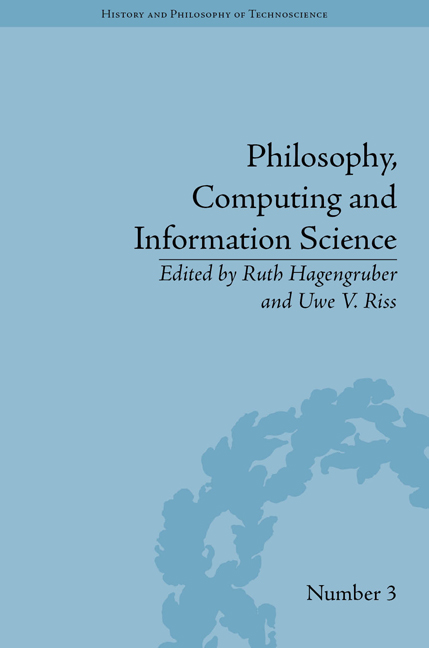Book contents
- Frontmatter
- CONTENTS
- List of Contributors
- List of Figures and Tables
- Introduction: Philosophy's Relevance in Computing and Information Science
- Part I Philosophy of Computing and Information
- Part II Complexity and System Theory
- Part III Ontology
- Part IV Knowledge Representation
- Part V Action Theory
- Part VI Info-Computationalism
- Part VII Ethics
- 19 The Importance of the Sources of Professional Obligations
- Notes
- Index
19 - The Importance of the Sources of Professional Obligations
from Part VII - Ethics
- Frontmatter
- CONTENTS
- List of Contributors
- List of Figures and Tables
- Introduction: Philosophy's Relevance in Computing and Information Science
- Part I Philosophy of Computing and Information
- Part II Complexity and System Theory
- Part III Ontology
- Part IV Knowledge Representation
- Part V Action Theory
- Part VI Info-Computationalism
- Part VII Ethics
- 19 The Importance of the Sources of Professional Obligations
- Notes
- Index
Summary
The study of philosophy provides many general benefits to members of any field or discipline, the easiest of which to defend are an appreciation of, and experience with, critical thinking, including the ability to apply principles thoughtfully and logically in a variety of contexts; it is the discipline that, according to Plato, Socrates believed made life worth living. Today, however, most disciplines can lay claim to critical thinking – information science certainly involves a great deal of logical analysis – but only philosophy, in the Western world, can lay claim to having developed logic and critical thinking and thereby may have furthered the process more than any other discipline. Historically, philosophy is also the discipline in which one learns how to think about the most complex and important questions including questions about what is right and proper; that is, philosophy arguably lays claim to the development of ethics.
Before going further, I should note that I am neither a philosopher nor an information scientist. I am a social psychologist and statistician whose interests have brought me into the realm of practical ethics primarily through ethical issues relevant to empirical research. I should also note that I am firmly in the camp of those who consider there to be an important distinction between morals and ethics; as do others, I argue that moral judgements essentially involve questions about whether or not rules, defined broadly, are followed, whereas ethical judgements essentially involve questions about whether or not a particular rule is worthwhile and, when there are incompatible rules, which rule should be granted higher priority.
- Type
- Chapter
- Information
- Philosophy, Computing and Information Science , pp. 223 - 230Publisher: Pickering & ChattoFirst published in: 2014



